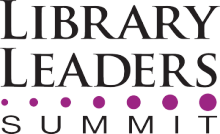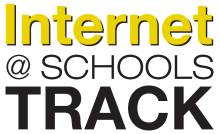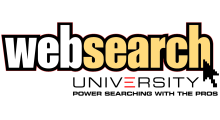Wednesday, April 18, 2018
Listen and learn at a series of free cybertours and information sessions for all Computers in Libraries 2018 Exhibit Hall visitors. Taking place at the CyberCorner in the Exhibit Hall, these cybertours cover a range of topics & subject areas. They are open to all and add value to your visit. Space is limited so it's first-come, first-served. Join our Net savvy Web experts for a look at their favorite sites and topics! There is no need to register, simply pick the cybertour of interest to you and arrive at our CyberCorner within the Computers in Libraries 2018 Exhibit Hall at the appropriate time.
Create Once Publish Everywhere (COPE)
11:00 a.m. - 11:15 a.m.Explore how to adapt NPR’s Create Once Publish Everywhere (COPE) model to a library’s website(s) and resources. Degler covers coping strategies to alleviate the frustration of editing or correcting out-of-date and conflicting content across a variety of online resources. Example approaches include syncing navigation menus, repurposing content, and abstracted URLs across the library’s websites, resources, LibGuides, and discovery platform. Get lots of tips and tricks to use in your environment!
Transitioning to Open Source
11:30 a.m. - 11:45 a.m.Virginia Polytechnic Institute and State University is transitioning to open source as their next Library Management System of the library's 1.5 million plus holdings. They are also creating a unified catalog allowing students to easily find all of the resources needed in one interface. Hear how the decision was made by The Virginia Tech University Libraries for this large scale academic library adoption, their challenges and experiences.
Doing Online Research & Ordering a Salad: Similar?
12:00 p.m. - 12:15 p.m.If you're in a hurry and just need to eat, then pretty much any salad will satisfy you. But if you're training for an iron man and observing a strict ketogenic diet, you'll likely have strong and specific preferences about what goes into your salad. Research is not so different. When you use online databases, what constitutes an optimal experience is almost entirely a function of what you're trying to achieve. Learn how the development of highly responsive and adaptive platforms can help researchers achieve their objectives far more efficiently than ever before.
Improving Customer Digital Experience: Research
12:30 p.m. - 12:45 p.m.A federally-funded project led by Univ. of Maryland's iSchool will be implementing a new auto-personalization system in several test libraries in 2018-19. Library patrons can use the system to choose and automatically store their preferred settings in the cloud, which instantly change the computers in libraries, schools, work, and home to a form that is easier for them to understand and use. This will improve the digital experience for people with diverse abilities, skills and interests, including those experiencing barriers to computer use because of disabilities, aging, or low digital literacy. Hear more from our speaker.
Marketing Tips from Award-winning Libraries
1:00 p.m. - 1:15 p.m.Looking for new and novel ways to increase your library’s traffic and maximize your outreach efforts? Join this cybertour for marketing ideas from three award-winning federal libraries, staffed by Zimmerman Associates, Inc.
Leveraging Data & Learning Outcomes: Tech Toolkit
1:30 p.m. - 1:45 p.m.Get tips on doing an assessment of information literacy instruction and mapping it to student learning outcomes, ACRL Framework and the AACU rubric for learning. Hear how this library used LibWizard to create the pre-and post-test, embedded in a private LibGuide and then deployed in selected classes using NetSupport Tutor or Blackboard Learning Management System. With a baseline of learning outcomes, results were analyzed using the LibWizard reports as well as Voyant Tools to analyze free text comments. Hear the results and get some info on the tech tools they used.
Customer-Focused Thesauri
2:00 p.m. - 2:15 p.m.Thesauri support consistent indexing, and high precision and recall in retrieval in research databases, but on the customer end, thesauri are often overlooked in user interfaces which promote a simplified search experience. Hear about the features and benefits of a thesaurus, how the “hidden” thesaurus can be found, and see through subscription database demos and screenshots. As editor of the Gale subject thesaurus, our speaker hopes to encourage librarians to guide, train, and/or provide documentation to users to encourage them to find and make use of a database’s thesaurus to get the most accurate results.
Dealing with Link Rot & Reference Rot
2:30 p.m. - 2:45 p.m.Experienced the problem of dead links and getting the dreaded 404 page not found notice? Link Rot affects scholarship, legal opinions, and scientific research. An even more troubling problem is reference rot where the links still work but the content is altered in such a way that it no longer reflects the original text. Recent studies point out that both link rot and reference rot are eroding the accessibility and reliability of Supreme Court opinions, legal scholarship, and scientific research. Hear more about the problem and various solutions being offered to prevent the loss of important scholarly, scientific, and cultural content.
Sustainable 3D Printing
3:30 p.m. - 3:45 p.m.Thinking of purchasing your first 3D printer but not sure where to start? Already own one but feel it’s underutilized? This talk is dedicated to ensuring that 3D printing at your library is successful and sustainable! Learn how to train staff, develop programs and services for the public, market your library’s 3D printer and communicate value to stakeholders.
Thursday, April 19, 2018
Listen and learn at a series of free cybertours and information sessions for all Computers in Libraries 2018 Exhibit Hall visitors. Taking place at the CyberCorner in the Exhibit Hall, these cybertours cover a range of topics & subject areas. They are open to all and add value to your visit. Space is limited so it's first-come, first-served. Join our Net savvy Web experts for a look at their favorite sites and topics! There is no need to register, simply pick the cybertour of interest to you and arrive at our CyberCorner within the Computers in Libraries 2018 Exhibit Hall at the appropriate time.
Using the Crossref REST API within Scholarly Workflows
11:00 a.m. - 11:15 a.m.The Crossref REST API lets anyone search, filter, facet and sample Crossref metadata related to over 90 million content items with unique Digital Object Identifiers (DOIs). It’s free to use, the code is publicly available and end-users can do whatever they want with the data. In exposing the authoritative cross-publisher metadata to the community in this way, it becomes more accessible, functional and much simpler to integrate with third party systems and services (from the publisher and the end-user side). Smoother workflows and increased discoverability using existing publisher processes - what’s not to like? Hear how third parties can, and do use the API to integrate publisher metadata into their own products and services, e.g. Coko Foundation’s Pubsweet ‘science blogger’ alpha, Kudos, Authorea, Open Tree of Life, JournalHub, Impactstory. Also hear about the potential of this API in helping streamline OA workflows within academic institutions.
Usable & Helpful Tutorials for International Students
11:30 a.m. - 11:45 a.m.Hear about tests for usability and effectiveness for a suite of tutorials created for international students. The testing asked students to think aloud during the process of performing the tasks and going through the tutorial. These sessions were recorded through audio, video, and note-taking, and a brief exit survey. Tests showed that prior to taking the tutorial the majority of the participants did not use the library online catalog as their starting point, instead opting for the Google-like e-Discover search engine. After taking the tutorial, most participants began their searches with the library online catalog. Get tips and useful guidelines for developing usable and helpful tutorials.
Negotiating Successfully with Vendors
12:00 p.m. - 12:15 p.m.According to Outsell, the Information Industry generates over $700B in revenue to the vendors servicing the library community. Academic Libraries spend $7 billion per year. $4 billion of this on acquisition of products & technology to serve users. Libraries deal with hundreds, even thousands of unique vendors every year. And budgets are generally flat or constricting. Gruenberg examines the economic value components and motivations from the vendor side of the negotiation process and how those drivers impact negotiations with libraries. Be better prepared for your next negotiation.
Guide to GIF
12:30 p.m. - 12:45 p.m.GIFs are everywhere, but how do you make the most of them? GIFs can be a valuable tool for emotionally engaging your social media followers particularly those in younger generations. This cybertour discusses best practices for using GIFs including how to find the right GIF, the types of GIFs available, and GIF management. It looks at the way GIFs are used to denote irony, humor and sarcasm, and emotional reaction as well as the power of GIFs in regards to racial emotional labor, contextual implications, and directive emotional impacts. Hear how GIFs can be made more accessible to your users.
Podcasting “How To” A-Z
1:00 p.m. - 1:15 p.m.Podcasting is a growing form of entertainment and information. Whether connected to a maker space or on its own, podcasting can be a valuable addition to any library. This talk demonstrates what it takes to set up a podcast for a library and for patrons starting with the concept to hardware, software, hosting and launch.










